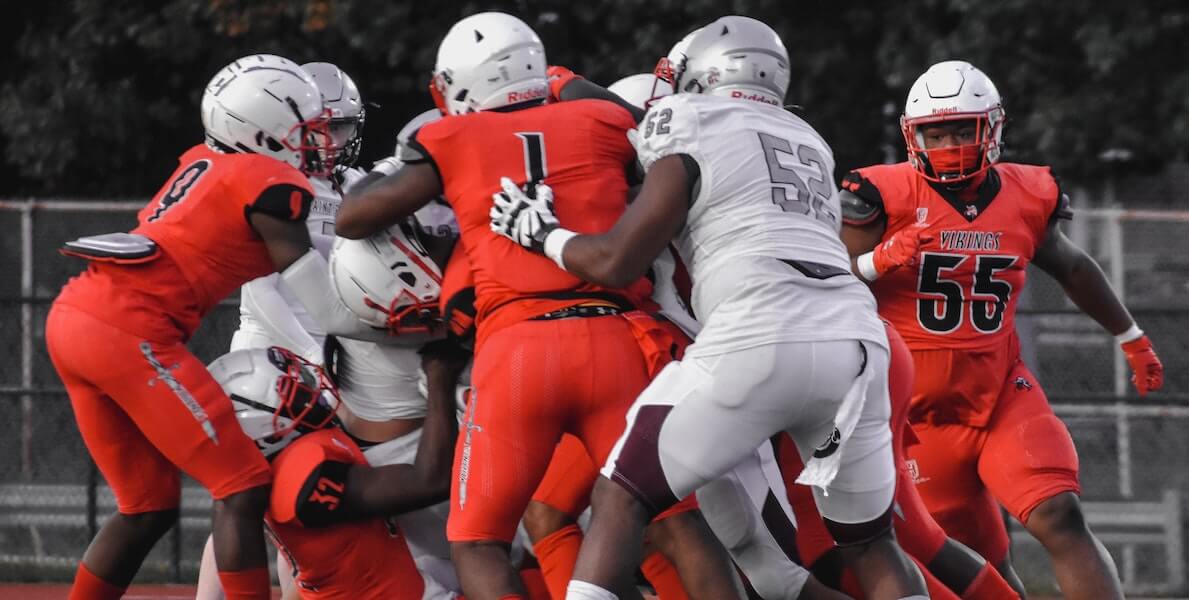The murder outside the Roxborough High School and Boys’ Latin junior varsity football scrimmage is a heinous tragedy. Five teenagers were shot, and the 14-year-old boy who lost his life was — from all accounts — a remarkable young man who looked for ways to get along with everyone he met. Our kids, parents, and community are still dealing with trauma. And understandably, several high schools in the area postponed, canceled, or adjusted their football games. Meanwhile, Philadelphia parents are left wondering: Are extracurriculars, like football, worth it?
Keeping our students safe must be our utmost priority. We need to utilize the school district and Philadelphia police, and implement security measures that ensure a tragedy like this never happens again.
But now is also an opportunity to evaluate the role extracurriculars play in our students’ education. Street violence, like the Roxborough shooting, discourages participation in extracurriculars like sports — the very activities organizers and families hope will prevent violence. We must take the counterintuitive step of insisting on more after-school activities and more participation. We cannot cancel high school football long-term and surrender what we know to be essential learning opportunities for our students.
A wealth of research confirms that extracurriculars help students reach higher academic achievement. Moreover, they have potential to correct students’ behavioral problems — keeping our students and communities safer.
The most important time for participation is after school before parents come home — when students are most at risk for engaging in violence or other bad behaviors.
One study explains how extracurriculars encourage discipline and responsibility while discouraging drug and alcohol use, gang involvement, and criminal activities. The most important time for participation is after school before parents come home — when students are most at risk for engaging in violence or other bad behaviors.
Another study reveals that extracurriculars have the greatest positive impact on low-income or at-risk students.
Unfortunately, the students who most need them are the least likely to access robust extracurricular programs. A 2019 poll shows students in low-income households have twice the level of non-participation in extracurriculars compared to their peers in high-income homes.
The gap in participation is, at least in part, the result of lack of access.
The achievement gap
Board member of Boys’ Latin Charter School, Dr. James “Torch” Lytle, an adjunct professor in Penn’s graduate school of education, argues that students in inner city high schools have significantly less time and engagement in school-related activities compared to their counterparts in suburban or private schools.
Dr. Lytle calculates that urban students who attend public schools have a six-hour school day and an attendance rate of less than 80 percent. With little or no commitment to after school activities and homework, the average urban student has around a 25-hour-per-week commitment to school. Compare this to the average private school student, who is more likely to have excellent attendance, extensive homework, mandatory activities, and even weekend schoolwork. Lytle says private school students have about a 70-hour-per-week commitment — or nearly triple the time of urban students. Because of better attendance and more after-school activities, private school students experience significantly more learning time than their urban school peers.
Lytle theorizes, what we call, the “achievement gap” between students is actually a “time gap.” In other words, these suburban- and private-school students excel in their classes and later in their professional work because of the long hours they spent rehearsing the school play, practicing a musical instrument, playing soccer, or participating in other activities to enhance their learning experience.
None of our typical remediation methods, like merely increasing public school funding, can overcome this time deficit.
We’re failing our students if we block them out of certain schools or activities. Students should have equal access to high-quality programs — regardless of their zip code.
That’s why extracurriculars have always been significant — even mandatory during our early days — at Boys’ Latin. We encourage our students to challenge themselves with intellectual pursuits like robotics and mock trial, artistic outlets such as choir and drama productions, and of course, sports like soccer and football.
In exemplary high school programs, these activities are equally important — if not more so — as math class.
We’re failing our students if we block them out of certain schools or activities. Students should have equal access to high-quality programs — regardless of their zip code.
Especially in cities like Philadelphia, where homicides continue at near record-setting rates, students need safe places to participate and thrive in extracurriculars. We must be proactive about protecting our kids, but we also must prioritize a well-rounded education. These goals are not mutually exclusive — but come hand in hand.
David Hardy, co-founder and retired CEO of Boy’s Latin of Philadelphia Charter School, is a Distinguished Fellow at the Commonwealth Foundation, Pennsylvania’s free-market think tank.
The Citizen welcomes guest commentary from community members who stipulate to the best of their ability that it is fact-based and non-defamatory.
![]() MORE ON PHILADELPHIA SCHOOLS + STUDENTS FROM THE CITIZEN
MORE ON PHILADELPHIA SCHOOLS + STUDENTS FROM THE CITIZEN



